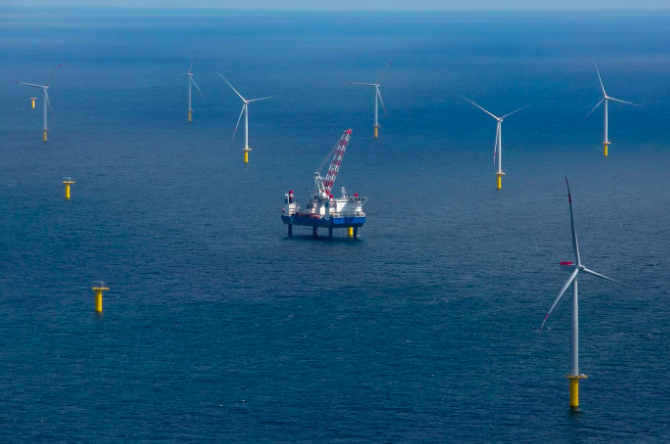The plans of the new management of Petrobras to invest in renewable energy have begun to take shape.
The state-owned company announced to the market on Monday 6 that it signed a letter of intent to expand its partnership with the Norwegian oil company Equinor.
The objective is to evaluate the technical-economic and environmental feasibility of seven offshore wind power generation projects on the Brazilian coast, generating up to 14.5 GW by 2028 – equivalent to the Itaipu power plant.

“This agreement will pave the way for a new frontier of clean and renewable energy in Brazil, taking advantage of our country’s significant offshore wind potential and boosting our trajectory toward energy transition,” said Petrobras’ new CEO, Jean Paul Prates.
The executive, however, recommended caution.
“It is worth noting, however, that the phase is of studies and the allocation of investments depends on in-depth analyses to assess their feasibility, in addition to regulatory advances that will allow the authorization processes for the activities.”
No investment estimate was disclosed, but Prates and the Lula government have defended the allocation of the capital of the state-owned company to renewable sources and in the diversification of business instead of the concentration of recent record profits in the distribution of dividends to shareholders.
In the second semester of last year, the country had an installed capacity of 22 GW through more than 820 wind farms in operation in the country, private and public, of which about 90% are in the Northeast region.
It is the country’s second main energy source, behind only hydroelectric power.
The agreement expands the partnership signed between Petrobras and Equinor in September 2018, during Ivan Monteiro’s tenure as CEO, at the end of Michel Temer’s government.
It originally covered two wind farms, Aracatu I and II (on the coastal border between the states of Rio de Janeiro and Espírito Santo).
Besides these projects, the new agreement foresees the evaluation of the technical, economic, and environmental feasibility of wind farms Mangara (Piauí coast), Ibitucatu (Ceará coast), Colibri (coastal border between Rio Grande do Norte and Ceará) and Atobá and Ibituassu (Rio Grande do Sul coast).
Petrobras said in the communiqué that it develops other projects in wind energy, citing the tests of the Remote Buoy of Offshore Wind Evaluation (known as Bravo) in partnership with the SENAIs of Rio Grande do Norte (RN) and Santa Catarina (SC).
Equinor (ex-Statoil), in turn, has been one of the oil companies that invest the most in renewable energies globally, committing half of its capex (investment) on this front.
The company has offshore wind farms in operation in the United Kingdom and Germany and is developing projects in the United States and Southeast Asian countries, in some cases through partnerships.
In Brazil, the Norwegian company is active in oil and gas exploration in partnership with Petrobras and projects in other renewable energy sources.
Apodi (162 MW of installed capacity), in Ceará, was the first solar plant in Equinor’s global portfolio, operated by Scatec.
The plant started production in 2018.
In 2022, construction began on the Mendubim solar project (531 MW) in Rio Grande do Norte in partnership with Scatec and Hydro Rein and it is scheduled to operate in 2024.
With information from Bloomberg

